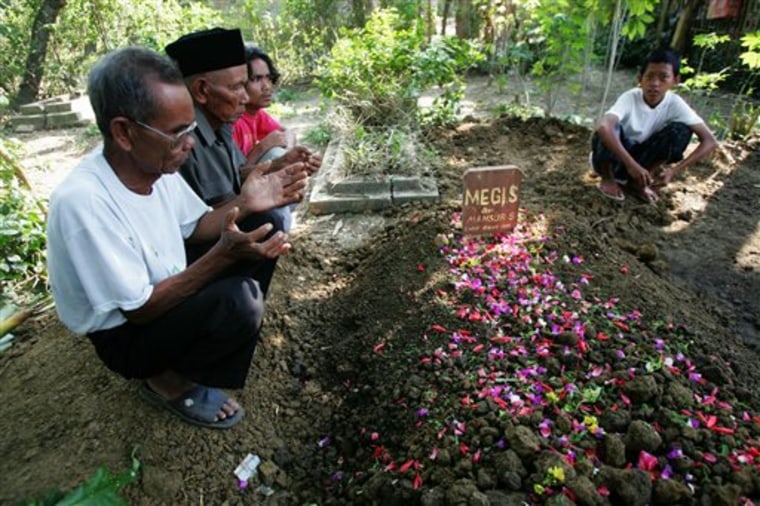The fast-mounting human death toll from bird flu in Indonesia — now believed the country worst-hit by the disease — concerns experts who fear the virus will keep infecting people until it is controlled in poultry.
Local tests concluded two teenagers living in Jakarta's outskirts succumbed to the H5N1 virus this week. Specimens have been sent to the U.S. Centers for Disease Control and Prevention for confirmation, and if positive, the country's death toll would rise to 44, making Indonesia the world's hardest-hit nation.
The country has racked up nearly a third of the world's fatalities in just one year, with the latest cases surpassing Vietnam's reported 42 deaths, which occurred over about 2 1/2 years.
But experts say the number of human deaths is a symptom of a much larger problem — the rampant spread of infection among the country's billions of poultry raised in backyard farms.
"When you have trouble controlling infection among the chicken flocks, you are naturally going to see continuing infections among humans," Dr. Anthony Fauci, infectious disease chief at the U.S. National Institutes of Health, told The Associated Press.
He said the more it spreads, the greater chance it has of eventually evolving into a strain that could cause a human pandemic.
"It's obviously a toll in human suffering, but it also continues to give this virus the capability of circulating," he said. "And the more it circulates, the more you have an opportunity."
Not as aggressive in attacking problem
Fauci, who visited Southeast Asia last year, said Indonesia has not shown the same aggressive approach as Vietnam and Thailand in tackling the problem in poultry.
Vietnam has not reported any human cases in nearly nine months and no poultry outbreaks this year, after launching a nationwide vaccination campaign in poultry last year.
Thailand — which has reported 16 deaths and is now experiencing a flare-up — relied on strong village-based surveillance and mass slaughtering when outbreaks were discovered.
But in Indonesia, many local governments have refused to carry out mass poultry slaughters and vaccinations have been sporadic. One of the main issues is a lack of centralized control in a young democracy where public awareness about the disease is lacking.
Misdiagnosis
"I knew about bird flu from the TV and radio, but when my son got sick I had no clue it was bird flu," said the mother of one of the teens who died this week, 16-year-old Megi Supatra. She said he was initially diagnosed with typhoid and told to go home.
The U.N. Food and Agriculture Organization is working with the government at the village level to develop local outbreak detection teams to snuff out poultry outbreaks before they can spread.
But progress is slow with limited resources in a country of 220 million people spread across 17,000 islands.
"It's a disgrace. We have the biggest problem in the world with avian influenza in Indonesia and yet the world is still not investing in getting a systematic control program in place," said Peter Roeder, an FAO expert in Rome who has worked closely with Indonesia. "What's Vietnam going to feel like if they get virus reintroduced from Indonesia?"
So far, about $50 million has been committed to the World Health Organization and FAO for work in animal and human health in Indonesia over the next 18 months, the World Bank says.
Roeder said that amount is needed over three years just to deal with the problem in poultry
Mutation could spark pandemic
The H5N1 virus has killed at least 135 people since it began ravaging Asian poultry stocks in late 2003. So far, most human cases have been traced to contact with infected birds, but experts fear the virus will eventually mutate into a form that spreads easily among people, potentially sparking a pandemic.
In May, seven of eight Indonesian family members died after becoming infected with H5N1 — the largest cluster ever reported. WHO said limited human-to-human transmission occurred. However, the virus did not spread beyond the blood relatives.
Amid international criticism, Indonesia's health minister recently said the country would make genetic information collected from virus specimens available for the scientific community to study.
But experts say the answer still lies with poultry.
"If you really want to control the spread of H5N1, it is important to root it out at the source and to actually make sure that you get the problem controlled in chickens," said Albert Osterhaus, a virologist at the Erasmus Medical Center in Rotterdam, The Netherlands. "It will be very hard because apparently the virus is endemic and all over the place there."
